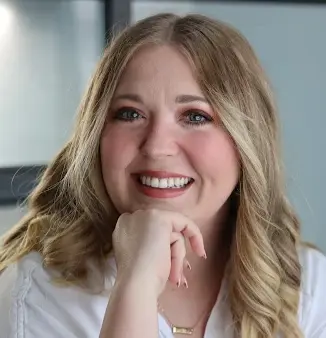First-Time Homebuyer Guide: Everything You Need to Know
Buying your first home is one of the most exciting and significant milestones in life. However, it can also be one of the most overwhelming experiences, especially if you’re not sure where to start. This comprehensive guide will walk you through every step of the homebuying process, from initial preparation to closing day.
Understanding Your Financial Situation
Before you start looking at homes, it’s crucial to understand your financial situation thoroughly.
Check Your Credit Score
Your credit score plays a significant role in determining your mortgage rate and loan approval. Aim for a score of 740 or higher to qualify for the best rates. You can check your credit score for free through various online services.
Calculate Your Debt-to-Income Ratio
Lenders typically want your total monthly debt payments (including your future mortgage) to be no more than 43% of your gross monthly income. Calculate this by dividing your total monthly debt by your gross monthly income.
Save for a Down Payment
While some loans allow for down payments as low as 3.5%, saving 20% or more will help you:
- Avoid private mortgage insurance (PMI)
- Get better interest rates
- Have more equity in your home from day one
Getting Pre-Approved for a Mortgage
A mortgage pre-approval is essential before you start house hunting. It shows sellers that you’re a serious buyer and gives you a clear budget to work with.
What You’ll Need for Pre-Approval
- Proof of income (pay stubs, W-2s, tax returns)
- Bank statements
- Employment verification
- Credit report
- List of debts and monthly payments
Types of Mortgages
Conventional Loans: Require 3-20% down payment, good credit score FHA Loans: Require 3.5% down payment, more flexible credit requirements VA Loans: Available to veterans, often require no down payment USDA Loans: Available in rural areas, often require no down payment
Finding the Right Home
Determine Your Must-Haves vs. Nice-to-Haves
Create two lists:
- Must-haves: Features you absolutely need (number of bedrooms, location, etc.)
- Nice-to-haves: Features you’d like but can live without
Choose the Right Location
Consider factors like:
- Commute time to work
- School district quality
- Property taxes
- Future development plans
- Safety and crime rates
Work with a Real Estate Agent
A good real estate agent will:
- Help you navigate the market
- Negotiate on your behalf
- Handle paperwork and deadlines
- Provide market insights and advice
Making an Offer
Research Comparable Sales
Your agent will help you research recent sales of similar homes in the area to determine a fair offer price.
Include Contingencies
Common contingencies include:
- Home inspection contingency: Allows you to back out if major issues are found
- Appraisal contingency: Protects you if the home doesn’t appraise for the purchase price
- Financing contingency: Allows you to back out if you can’t secure financing
Earnest Money
This is a deposit (typically 1-3% of the purchase price) that shows you’re serious about buying the home. It’s held in escrow and applied to your down payment at closing.
The Home Inspection
A home inspection is crucial for identifying potential issues with the property.
What Inspectors Check
- Structural integrity
- Electrical systems
- Plumbing
- HVAC systems
- Roof condition
- Foundation
- Pest infestations
After the Inspection
If issues are found, you can:
- Request repairs from the seller
- Negotiate a price reduction
- Walk away from the deal (if you have an inspection contingency)
Closing the Deal
Final Walkthrough
Conduct a final walkthrough 24-48 hours before closing to ensure the home is in the agreed-upon condition.
Closing Costs
Be prepared for closing costs, which typically range from 2-5% of the purchase price and include:
- Loan origination fees
- Appraisal fees
- Title insurance
- Property taxes
- Homeowner’s insurance
What to Bring to Closing
- Government-issued ID
- Cashier’s check for closing costs
- Proof of homeowner’s insurance
- Any additional documentation requested by your lender
After Closing
Change the Locks
For security, change the locks on your new home immediately.
Set Up Utilities
Contact utility companies to transfer or set up service in your name.
Keep Important Documents
Store all closing documents, including your deed and mortgage paperwork, in a safe place.
Tips for Success
- Don’t rush the process: Take your time to find the right home
- Stay within your budget: Don’t let emotions lead you to overspend
- Ask questions: Don’t hesitate to ask your agent or lender for clarification
- Get everything in writing: Verbal agreements aren’t binding
- Plan for the future: Consider how long you plan to stay in the home
Conclusion
Buying your first home is a significant milestone that requires careful planning and preparation. By following this guide and working with experienced professionals, you can navigate the process successfully and find the perfect home for your needs.
Remember, every homebuying journey is unique, and having a knowledgeable real estate agent by your side can make all the difference. If you’re ready to start your homebuying journey, I’m here to help guide you through every step of the process.
Ready to start your homebuying journey? Contact me today to discuss your goals and get started on finding your dream home.


